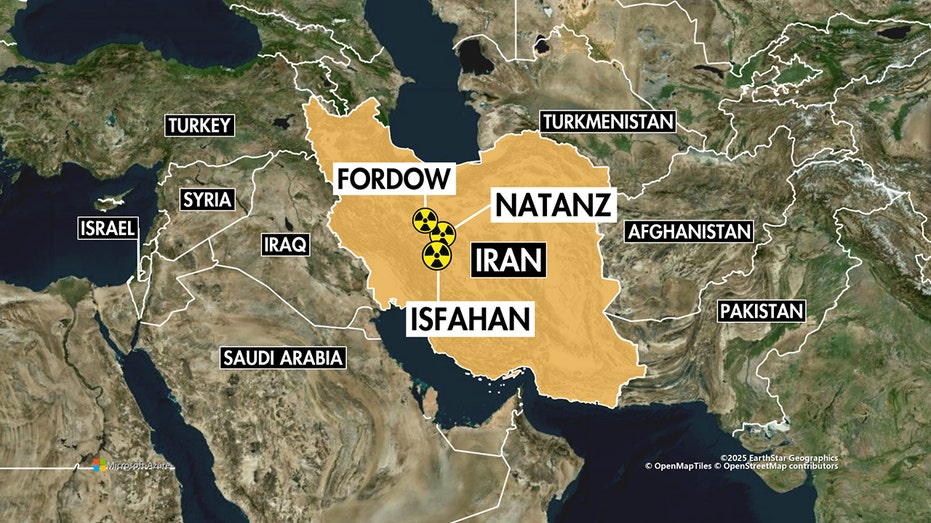Related News
Trump hails ‘monumental' damage as experts await verdict on Iran’s nuclear program
Posted by - Senbookpro KAAYXOL -
on - 9 hours ago -
Filed in - Society -
-
10 Views - 0 Comments - 0 Likes - 0 Reviews

As the dust still settles following the U.S. attack on Iran’s nuclear sites, analysts say the next steps will determine whether the Islamic Republic’s atomic ambitions have truly been crippled.
Commenting on the mission, President Donald Trump wrote on Truth Social that: "The damage to the Nuclear sites in Iran is said to be "monumental." The hits were hard and accurate. Great skill was shown by our military. Thank you!"
Also on Sunday, Chairman of the Joint Chiefs of Staff Gen. Dan Caine told reporters, "Final battle damage will take some time, but initial battle damage assessments indicate that all three sites sustained extremely severe damage and destruction." He added it was far too early to comment "on what may or may not still be there."
A senior Israeli security source told Fox News Digital, "It’s still too soon to know for sure, but it appears the sites were seriously damaged — it looks excellent."
HERE’S WHAT A POST-AYATOLLAH IRAN COULD LOOK LIKE IF WAR WITH ISRAEL LEADS TO REGIME’S FALL
"History is being written," said Reserve Brig. Gen. Yossi Kuperwasser, head of the Jerusalem Institute for Strategy and Security and a former IDF intelligence chief. "This is a powerful development that significantly weakens the Iranian threat and highlights the deep cooperation between Israel and the United States. But the journey is far from over."
According to Kuperwasser, the strikes caused heavy damage to core parts of Iran’s nuclear infrastructure. "But I don’t think the program is destroyed," he told Fox News Digital. "They still have enriched uranium, the ability to produce centrifuges, and scientists. We killed many, but not all. And even the bombed facilities — we don’t know for sure that nothing remains."
Kuperwasser emphasized that while Tehran may retain some nuclear assets, a key strategic threshold has now been crossed. "Until now, everything was covert: sabotage, diplomacy, sanctions. But now, military action has proven far more effective. If Iran tries to restart its program, they know we — and the Americans — are prepared to strike again."
Sima Shein, a former senior Mossad official and Iran expert at Israel’s Institute for National Security Studies (INSS), agreed that Iran’s capabilities have been degraded, but not eliminated.
"There’s no doubt these were the three most important sites," Shein told Fox News Digital, referring to the U.S. strike Saturday night that hit Natanz, Isfahan, and Fordow, but claimed "Iran has dispersed its enriched uranium — both 60% and 20% — across various unknown locations. They’ve likely hidden advanced centrifuges as well, because production oversight hasn’t existed for years."
She added that if a future diplomatic agreement is reached, the first condition must be "full disclosure and removal" of all remaining fissile material.
EXPERT CONFIDENT IRAN'S NUCLEAR PROGRAM IS 'NO LONGER' AFTER MASSIVE US STRIKE
Mark Dubowitz, CEO of the Foundation for Defense of Democracies (FDD), told Fox News Digital that all remaining Iranian nuclear facilities must be completely dismantled and referred to FDD expert's plan, which outlined a strategy for the permanent dismantlement of Tehran’s nuclear weapons enterprise.
The report calls for the destruction of all enrichment sites, the removal or seizure of enriched uranium, the dismantling of advanced centrifuges, and a permanent halt to weaponization efforts. It also demands unrestricted inspections, irreversible disarmament, and strict enforcement through snapback sanctions. FDD argues that anything less would leave Iran capable of rebuilding its nuclear program.
Amos Yadlin, a former head of Israeli military intelligence and president of the Mind Israel think tank, called the American strike a "game-changer."
"Trump’s doctrine of ‘peace through strength’ is in action," Yadlin said. "Geopolitically, this changes the entire war — and sends a message to China, Russia, and others."
But Yadlin also believes Iran's nuclear capabilities haven’t been wiped out completely. "There are two possible Iranian responses: retaliation and changing nuclear policy. Retaliation may come via terror attacks in the Gulf, or pressure through proxies like Hezbollah or the Houthis. But I think the more likely shift is in nuclear posture — perhaps withdrawing from the NPT."
"They’re in a dilemma," Shein told Fox News Digital. "They don’t want to drag the U.S. further into military conflict, and they can’t risk harming ties with Gulf neighbors. A military retaliation — like closing the Strait of Hormuz — would invite overwhelming force. Expelling inspectors or quitting the NPT [Non-Proliferation Treaty] may be their next moves."
Kuperwasser added that military pressure alone may not bring lasting resolution — unless paired with either a diplomatic agreement with intrusive inspections, or a credible threat of continued strikes.
"If there’s an agreement, it must be based on verification — not trust," he said. "Anywhere, anytime inspections. But if they refuse, we can continue striking any new facility they build."
As Israel and the U.S. prepare for potential cycles of response and counter-response, Kuperwasser believes the Israeli public is ready.
"These are historic times," he said. "We understand the sacrifice — and we’re ready to see it through."







